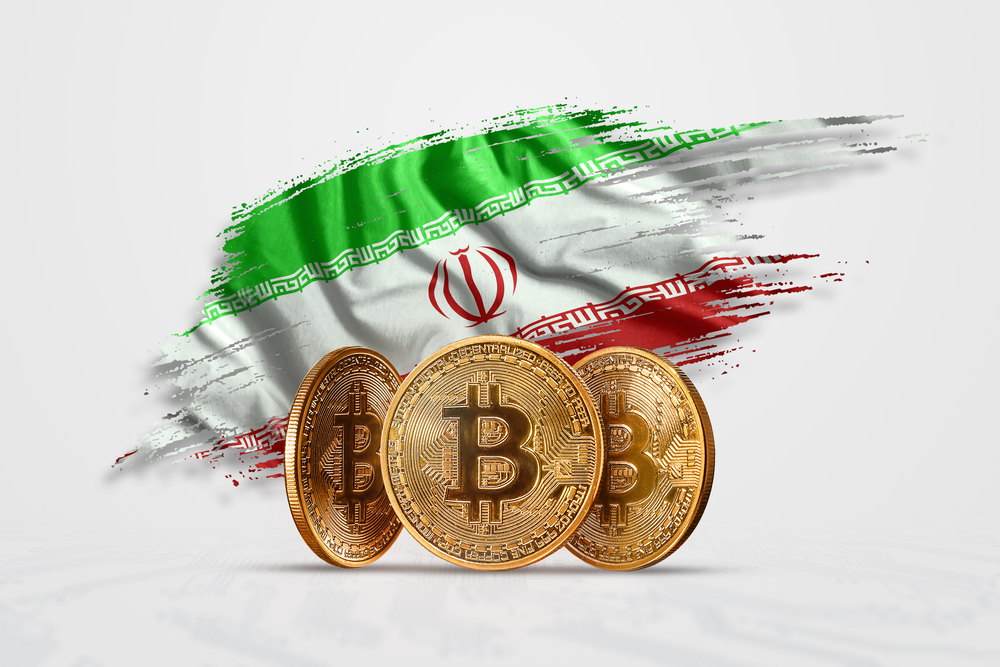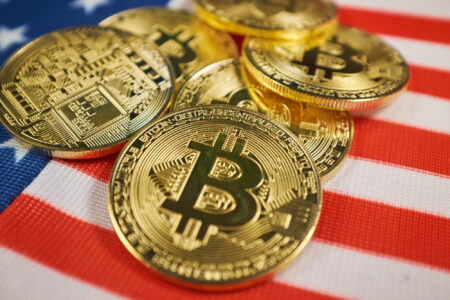An interview with Bitcoin investor Tuur Demeester about crypto-currencies, their significance in the theory and history of money, and their revolutionary potential for society as a whole.
This article was originally published on 10×10.ch and is part of a cooperation.
How has Bitcoin changed the understanding of money?
Bitcoin shows us that Hayek's proposed denationalization of money is not just a pipe dream -- it also challenges the idea that the money supply must be managed bureaucratically. Bitcoin makes a strong case to the world to the world that money can be scarce, decentralized, market-based, censorship-resistant, politically neutral, and audit-able.
Is there an inherent contradiction between the notion that money is a store of value, a medium of exchange and a unit of account; all bundled into one?
As the classical economist Stanley Jevons has described, the four characteristics of money are in fact four successive stages of evolution. First, collectibles. Second, a store of value. Third, a medium of exchange. And finally, fourth, the unit of account. If Bitcoin is to become full-fledged 'money', it must satisfy all four conditions.
Doesn't money, as an economic-lubricant, have to be flexible in its supply in order for economies to function?
This idea of money as a lubricant for the economy is one of the most damaging analogies of all time. Increasing the money supply only causes a misallocation of capital (by giving the first recipients of the new money more purchasing power to the detriment of the later recipients). These interventions do not magically increase wealth. The reality is that the demand for money is always infinite. So should we print infinite money? Of course not! Money is a means of communication, it is the blood of the economy. The world economy only needs a fixed amount of money to calculate the price. As long as the monetary unit is sufficiently divisible, no changes to the money supply are necessary.
But who decides what is the optimal amount of money? Satoshi with the 21 million programmed Bitcoin? The market? If the latter is the case, the money supply cannot be fixed, because otherwise there would be no discovery process, since the amount is already set.
Bitcoin is a mechanism for efficiently converting energy into financial reliability. If the market decides that it likes the atomic properties of Bitcoin, then it must accept its firmly programmed financial policy. Very much like the market, having chosen gold as its currency book, it had no choice but to accept the special physical and scarce properties of gold in our world. I think there is really no debate at this point. Savers, ceteris paribus, will always prefer scarce assets over non-scarce assets. Thus, the demand for assets with a more liberal supply system than Bitcoin is fundamentally undermined.
Yet, when something that serves as a store of value is hoarded and cannot be used as a medium of exchange that often has to change hands -- do you not see this a contraction?
No, I do not. If something is a store of value, it means that it has an optionality. Think of the potential energy stored in one pound of gunpowder. Very powerful, but the same pound stored in bullets is probably even more powerful because it allows the owner to release the potential energy completely at a point of his choice with a simple touch of a finger. No time-consuming actions are required to prepare the gunpowder for use! And the more liquid (=saleable) an asset is, the better it will work as a store of value. When an asset acts as a medium of exchange, it only means that it has reached such a high liquidity threshold that it can now be used as a way to move the value regularly.
This is a fascinating analogy, but won't there be strong incentives to hoard Bitcoin because it is designed to be the largest store of value ever created?
"Hoarding" is just a derogatory synonym for saving. There is nothing wrong with saving; on the contrary, saving is really the engine of all sustainable economic growth. In a world of hard money, all economic development comes from investments that require a prior rescue (even the bootstrapping entrepreneur has saved enough resources to be able to invest valuable time in his start-up).
To return to your analogy from above, "hoarded" Bitcoin can be seen as a mountain of potential energy that can be released at will?
Yes. Think of it as potential purchasing power patiently waiting to rebalance the markets. This energy is used especially when markets are undervalued. With the consequence that investors are not prepared to provide companies with new capital to improve production and efficiency. This is despite the fact that consumers show sufficient demand and purchasing power to allow these companies to grow sustainably. It is also an illusion to think that somehow all Bitcoins could or would be hoarded. Man is mortal, and there is always a price at which he would be willing to sell a fraction of a liquid asset that happens to be in his possession.
In the age of Bitcoin, do we have to distinguish between stable and hard money? Bitcoin may not be price-stable in the short term, but in the long term it retains its value.
In my opinion, stable money will always be a pipe dream. All assets that trade freely in the market have a fluctuating price, including money. If the natural volatility of a financial asset is artificially suppressed, this eventually leads to hyper-volatility.
So stability in the case of fiat currencies is just an illusion that will eventually be shattered?
Any money that pretends to hold a stable price against another asset or a basket of assets will ultimately be unable to deliver. George Soros demonstrated the fallacy that fixed currency links are sustainable when he "broke" the Bank of England.
Is stable money at least a necessary illusion for producers and consumers to calculate their assets and manage their business?
It depends on how you define "stable". Of course, if an asset is extremely volatile, it will not be very useful as a unit of account. But on the other hand, the reason why it is so volatile could very well be that it is simply not mature enough. Commodities with stable supply, relatively stable demand, and which are owned and traded by hundreds of millions of investors, are generally price stable. Cycles will not disappear, and that's not ideal - but it's still the best we have.
Where do you think Bitcoin stands in the economic dichotomy?
I think Bitcoin has refuted the Austrian regression theory: money doesn't have to come from a commodity first. I also think Bitcoin challenges and refutes the Keynesian fallacy that the engine of economic growth is debt - in fact it can be savings and the thriving Bitcoin economy is a great example of that.
Doesn't the regression theorem simply say that for something to turn into money, it must first have some utility value? Since the utility value is subjective, Bitcoin doesn't necessarily violate the theorem, does it?
Right! I was drawing too broad a line when I said that commodity instead of "economic good with utility value" is commodity. The background to this discussion is that Carl Menger was the first "Austrian economist" to describe the historical origins of money. This means that all money probably came from market places where it had a certain value before it was used as a medium of exchange. And then his student Ludwig von Mises came and said that this value meant that this "pre-money good" must have had some use. And this is where Austrian dogmatists today have problems with Bitcoin, because they do not realize that utility is also a subjective phenomenon! The use of Bitcoin as a collector's item in the period 2009-2011 is a thoroughly valid "use case" under the subjective theory of value.
Do you believe that our world, often referred to as capitalist, will look completely different 50 years after Satoshi's introduction of Bitcoin?
I believe that Bitcoin will improve economic freedom and prosperity for people, just as the efficiency gains from printing presses, electricity and the internet have made the world a better place. Several monopolies will probably be challenged and unbundled because of Bitcoin, which should reduce the phenomenon known as "crony capitalism".
Can you perhaps tell us a little bit more about what kind of monopolies you mean? And what would the unbundling look like?
I am thinking mainly of the financial services industry, which includes the issuing of money and credit. Because of the monopoly on money production, this industry is highly centralized, with a lot of inefficiencies as a result. I also believe that the business cycle is based on credit expansion (money printing), which leads to a misallocation of capital throughout the economy, ultimately leading to a "bubble", or economic depression.
We are entering the digital age. Bankers, Nobel Prize winners, politicians and economists seem to be quite stubborn and uneducated in their reaction to Bitcoin and its broader effects. Can they see a parallel with feudal lords who were afraid of the industrial revolution?
I tend to draw more of an analogy with the Reformation. Just as the printing press enabled people to quickly and cheaply share ideas that they liked, Bitcoin enables capital to flow and be stored freely as never before. Similar to the Catholic Church in the 16th century, central banks and financial institutions today are "damned if they do, and damned if they don't" involved in the conversation about these new financial ideas. If they participate, they could be embarrassed by critics who point to the "true" meaning of their economic euphemisms or blame them for certain inconsistencies. But if they do not participate, they run the risk of being ignored and seen as old, outdated dinosaurs.
What about physical privacy in our time, is it dead?
I don't think privacy is dead at all, but there is indeed a struggle to centralize online identities. A promising countermovement of projects in this area uses the word "self-sufficient identity".
Is self-sovereign identity really a thing? And if so, is it being introduced by Bitcoin or another blockchain?
I could be wrong, but I don't believe that self-determined identity data is even stored directly on blockchains. I imagine that people employ "keychains" that can store parts of a multi-signature encryption system that can prove your identity. One could also share keys with family or friends for safekeeping. The Bitcoin Lightning technology could possibly play a role in compensating individuals or entities for storing the keys that help preserve people's self-conscious identity.
What do you think about blockchain technology? Is there only Bitcoin or could there be other things besides Bitcoin that are interesting?
I think there will be several crypto-currencies in the future, although I think Bitcoin's market share will be in the 80-90 percent range. In my opinion, private blockchains are a mistake: Approved databases with certain signature schemes have been around for a long time. As far as public blockchains are concerned, which are designed for fundamentally different purposes than the secure processing of transactions, I do not know and at the moment I do not see any that interest me.
Do you think Satoshi has covered all this?
Satoshi's code was not perfect. It laid a sufficiently good foundation, but even after ten years of development, a lot of work still needs to be done to turn the Bitcoin protocol into an environment with similar reach and social integration as the World Wide Web, for example.
Have the Western nation states reached their limits of (social) scalability and are they nearing the end?
I don't believe that nation states are coming to an end anytime soon, although I do think it is possible that a widespread adoption of Bitcoin could limit their ability to borrow and spend money. The ECB has already hinted at this possibility in its 2012 report on Bitcoin (Virtual Currency Programmes), where it pointed out that in such a scenario seigniorage income flows could be at risk. In other words, it is possible that we are currently at the height of the era of "governments".
There is the argument that Western nation states can only exist to the oversized extent that they do today because they can borrow and spend essentially indefinitely?
Indeed, the challenge with government-spent money is that it allows an almost unlimited search for profit maximisation: a monopolistic service provider (fiat banking) that demands an ever higher price for the privilege of financial transactions and investment. Bitcoin questions this.
Tuur Demeester is the founder of Adamant Capital, a US investment company. Tuur is very well versed in "austrian economics". He first discovered Bitcoin during a research trip to Argentina and started recommending Bitcoin as an investment at a price of USD 5 in January 2012.




